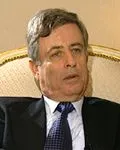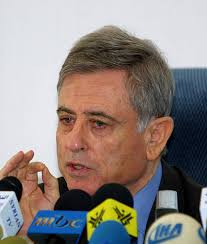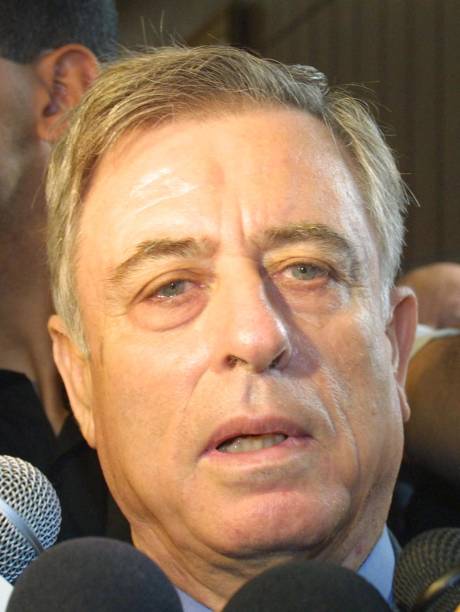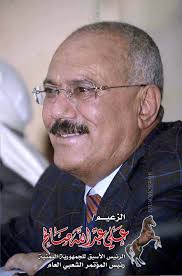Syrian Vice President Abdul Halim Khaddam emphasized that the relations between Kuwait and Syria are “deep-rooted and profound, and both countries always seek to enhance them in various fields.”
Khaddam made these remarks during his reception of a delegation from the Kuwaiti Journalists Association, led by the association’s secretary-general, Adnan Al-Rashid. He said, “I congratulate Sheikh Sabah Al-Ahmad Al-Jaber Al-Sabah on his appointment to form a new government in our sister Kuwait. We wish him success in serving Kuwait and the issues of the Arab nation, which he has devoted great effort and wisdom to support for decades in various Arab, regional, and international forums.”
He added, “We hold great respect for Sheikh Sabah, with whom we share a deep relationship of friendship and brotherhood.”
Khaddam confirmed that Kuwaiti-Syrian relations in all fields will deepen and strengthen through cooperation between Kuwaiti and Syrian officials, guided by the governments of both countries.
Khaddam discussed the situation in the Arab arena, the Iraqi issue, developments in the Arab-Israeli conflict, and the peace process in the region.
Regarding the Arab situation, Khaddam stated, “This situation needs to be addressed in a way that enhances the capabilities of Arabs to rise and protect their interests. The vulnerabilities in the Arab situation could pave the way for new negative repercussions. Therefore, we need to undertake a new and deep review of this situation within a clear and comprehensive program that everyone supports and works to implement.”
Khaddam recalled the Arab situation that existed before the collapsed Iraqi regime’s invasion of Kuwait and said, “If the situation had been good, Saddam Hussein wouldn’t have dared to invade Kuwait. Syria moved from the very first moments of the invasion, contacting numerous Arab brothers and standing by Kuwait’s side.”
Regarding the Iraq issue, Khaddam said, “We wanted to overthrow Saddam’s regime, but we didn’t want Iraq to collapse,” warning against the disintegration of Iraq, stating, “If Iraq experiences any disintegration, it will have repercussions on many Islamic countries.”
He continued, “The problem in Iraq is building a state and imposing security and stability in it,” emphasizing that Iraq is likely to remain unstable for a long time on the political level. He pointed out that the council that was formed includes many individuals who are not familiar with Iraq due to their long absence from it, and they are also unknown to the Iraqis. He stressed that nations cannot be built from the outside, and leadership should not come from outside.
Khaddam called for an Arab solution to the situation in Iraq, saying, “The future of Iraq is a significant problem because the current situation in this country does not give the impression that it will soon emerge from its crisis, and its current composition will not lead Iraq out of its crisis.”
He affirmed that addressing the situation in Iraq is part of addressing the overall Arab situation. He likened it to the Arab decision in the October 1973 war, where the Arabs took the initiative, and the decision to bring peace to Iraq could similarly be an Arab decision through a meeting where agreement is reached on a formula and ideas to resolve the crisis in Iraq. He stressed that this is not a matter of dispute among Arabs because the Arab world is responsible for helping Iraq out of its current crisis. He pointed out that the Arab solution would restore confidence to the Iraqis and prevent the disintegration of Iraq.
During the meeting, the Arab-Israeli conflict was also discussed, emphasizing the need for Arab solidarity to strengthen the Arab position and ensure the achievement of a just and comprehensive peace based on international legitimacy resolutions.
In this regard, Khaddam said, “There is Arab negligence in implementing the resolutions of Arab summits regarding this issue. The Arab League Summit in Beirut last year adopted the initiative of Saudi Crown Prince Abdullah bin Abdulaziz, and Israel acted to thwart it through its practices in Palestinian territories. Now, the issue of a final solution to the Palestinian issue in 2005 is being raised, with the establishment of a Palestinian state, as indicated by the roadmap. Has this state been defined by the Quartet Committee, and have they determined the fate of Palestinian refugees or the issue of Jerusalem?”
He continued, “We do not call for war and are working for a just and comprehensive peace in the region,” emphasizing that the real interests of the United States are with the Arabs.
Khaddam highlighted the role of media and journalism in addressing the Arab situation, stating that “the media should focus on a fundamental change in political, economic, and cultural structures and look towards a new Arab world because the deeper the divide becomes, the more a single Arab country cannot bridge this gap alone.”
He recalled the incident of the “Silent Death” events in 1973 when he went to Iraq to mediate, then visited Kuwait and met with the late Emir of Kuwait, Sheikh Sabah Al-Salem. Kuwait expressed readiness for a solution by implementing the 1963 agreement between Iraq and Kuwait when Ahmed Hussein Al-Bakr was Prime Minister of Iraq, an offer that was rejected by Baghdad, reflecting the ambitions of the former Iraqi regime toward Kuwait.




